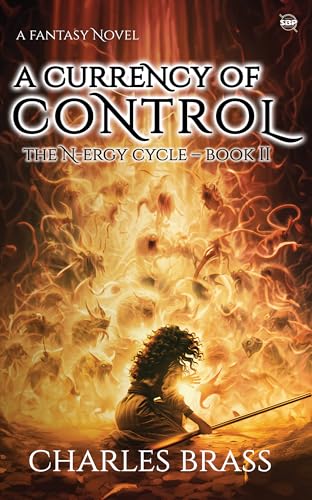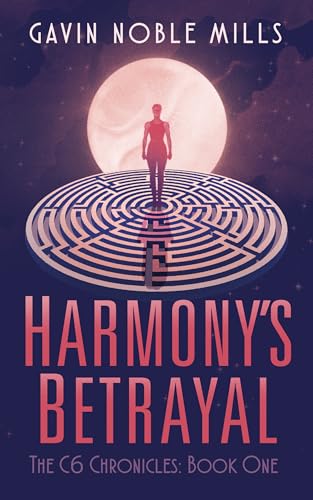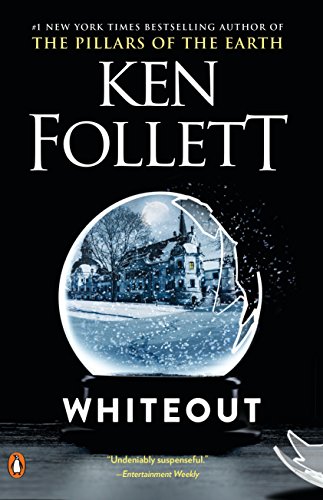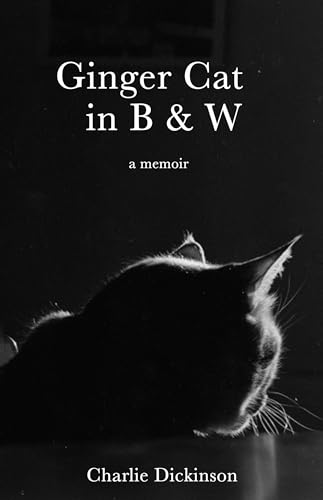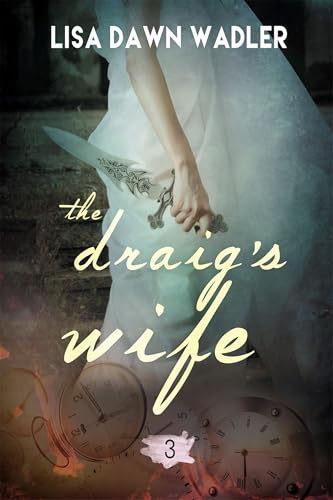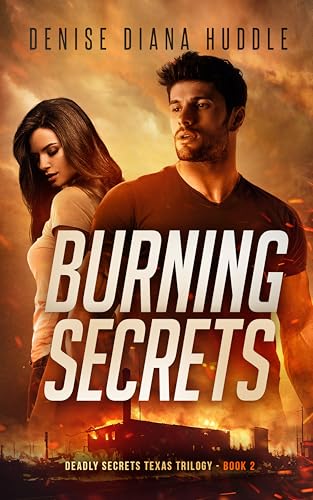On Friday we announced that M.D. Grayson’s Isabel’s Run (Danny Logan Mystery #3) is our Thriller of the Week and the sponsor of thousands of great bargains in the thriller, mystery, and suspense categories: over 200 free titles, over 600 quality 99-centers, and thousands more that you can read for free through the Kindle Lending Library if you have Amazon Prime!
Now we’re back to offer our weekly free Thriller excerpt:
Isabel’s Run (Danny Logan Mystery #3)
by M.D. Grayson
When danger comes lurking in the night, most people run home and hide—safe behind a locked door. For others, though, running home isn’t the answer. For these unlucky ones, when the front door closes and locks at night—the horror’s not locked outside. It’s locked inside.
Isabel Delgado knows all about horror. For nearly five years, her step-father subjects her to the kind of abuse and depravation that no child should ever have to endure. But Isabel survives. Her spirit is strong and she never gives up hope. On the morning of her 16th birthday, Isabel takes a stand. She wakes early, gathers her things in a school backpack, and with a last look behind, she runs. But Isabel’s not prepared for what she finds.
In the third Danny Logan mystery novel, Seattle author M.D. Grayson brings Danny Logan and the entire team at Logan PI–”Toni” Blair, Kenny Hale, and “Doc” Kiahtel—back for their most exciting and most important adventure yet. Their mission—find Isabel and rescue her from the street gangs and the seething cauldron of teen-age prostitution and human trafficking.
And here, for your reading pleasure, is our free excerpt:
Tuesday, May 8, 2012
4:45 p.m.
ISABEL DELGADO WAS in
trouble. She sneaked a glance out of the corner of her eye as the
uniformed security guard approached. She was seated on an iron bench
outside the Terraces food court, pretending to be absorbed in a
directory brochure of the Alderwood Mall in Lynnwood, Washington. The
guard drew closer. Not again, Isabel thought. She fought to
remain calm. She’d already been run off earlier in the day by a
different guard when she’d been unable to come up with a quick answer as
to why she was hanging around in the same area all morning long. That
guard threatened to call the police and have her arrested for loitering
if he saw her again. Isabel had left in a hurry. She’d completely
circled the mall, figuring that the guard wouldn’t wait that long to
catch her again. But in the end she had nowhere to go, so now, three
hours later, she was back, and another guard was approaching.
Isabel
had no desire to push her luck, but she was out of ideas, and she was
out of prospects. She’d tried to lay low since the earlier episode while
she waited for something to happen, and she’d been pretty successful—no
one had even talked to her except for a cute girl with red hair a
couple of hours ago who’d said that she, too, was running. But then the
girl suddenly left ten minutes later, and Isabel was alone again. Since
then: nobody. Which was fine with her. She knew she needed to do
something—but she didn’t want to make a mistake. Above all, she didn’t
want to be sent back home—couldn’t be sent back home. She’d decided that
if she were arrested, she’d lie about who she was so that they couldn’t
send her back. Meanwhile, she waited—waited for something to happen.
She
used her peripheral vision and concentrated on the new guard. He was
younger. If he stopped, maybe he’d be nicer. From twenty-five feet away,
she could hear his footsteps as he approached, keys jangling quietly at
his side. He whistled softly to himself, the same quiet, absent-minded
way her father used to whistle when he came up the walkway to the house
at the end of the day. Suddenly, the guard’s radio crackled and came to
life, causing him to stop before he reached her. Isabel was startled,
but she caught herself—she didn’t look up.
The
guard listened and then keyed his microphone. “Unit Two, roger,” he
said. “I’ll be there in five.” At least his voice sounded kind.
He resumed his approach. Isabel suppressed a shudder as the man paused when he reached her. She felt him looking at her. Steady, now. She looked up. The guard was tall and nice looking. Isabel thought he had kind eyes.
The guard looked at her for a moment. Finally, he smiled. “Hey there. What’s going on?”
Isabel
fought back the urge to panic. She was a quick learner and, after the
last encounter, she’d prepared a story. “I’m waiting for my mom.” She
trembled inside but she worked hard to keep her voice even as she used
the words she’d rehearsed in her mind. “She’s picking me up.”
“That
right?” The guard considered this. “If she’s picking you up, how come
you’re not waiting down at the benches by the curb?” He paused and
looked at her. “Say,” he added. “Aren’t you the girl who we ran off
earlier this morning?”
Isabel
tensed up and started to panic. She hadn’t expected that particular
follow-up question, and she was unprepared. She felt a quick surge of
adrenaline. All she could manage for an answer was a quick shake of her
head.
The
guard studied her for a second—an eternity for Isabel. He pursed his
lips, saying nothing, as if weighing whether or not to buy her story.
Then, apparently coming to a decision, he reached for his radio. Just as
he was about to key his microphone, though, he was interrupted.
“There
you are!” Isabel jumped. She turned and saw an attractive young woman
in her early twenties walking up the sidewalk, talking to her. Isabel
had no idea who she was.
“I
got mixed up,” the woman said, smiling brightly as she reached the two.
“I thought we were supposed to meet at the front of the mall.” She
turned to the guard, who’d frozen for a moment. “It’s okay, officer.
She’s with me.” She turned back to Isabel, “C’mon, sweetie. Let’s go
inside and grab a drink before we take off.”
Isabel
looked at the woman for a moment. She was dressed in a loose,
shimmering green knit sweater over a white blouse. She wore tight black
slacks and black shoes with heels so tall that Isabel wondered how she
could stand up. Her dark brown hair cascaded over her shoulders in loose
curls. Even her perfume smelled wonderful. She was one of the most
beautiful women Isabel had ever seen. The woman made a small, urgent
gesture with her head as if to say “C’mon.”
Isabel felt the guard staring at her, so she made up her mind quickly. “Sure,” she said, standing. “Let’s go.”
The
woman smiled and took Isabel’s arm. Together, they left the guard
standing on the sidewalk, watching them. They turned and walked through
the double doors into the food court. Once inside, the woman said,
“C’mon. Let’s sit over here for a minute and talk.” She led Isabel to a
nearby table.
The
food court at the mall is a large open area of dining tables surrounded
by restaurants. There were few shoppers there—the lunchtime crowd had
left, and the evening shoppers had yet to arrive. The smells of the food
from the different shops instantly reminded Isabel that she was hungry.
“Whew,
that was a close one, huh?” the woman said as she scanned the area
around their table. She turned back to face Isabel. “I’m Crystal. What’s
your name?”
“Isabel.” To say that Isabel was confused would be a big understatement.
Crystal
looked around again and then back at Isabel. “I couldn’t help but
overhear you talking to the guard, Isabel. It sounded like you might
need rescuing. Are you really waiting for your mom?”
Isabel shuttered. “Yes,” she lied. She didn’t know this woman. “She’s coming to pick me up.”
Crystal smiled. “Good.” She studied Isabel intently for several seconds. “Have you been waiting long?”
Isabel
couldn’t very well tell Crystal the real story—that she’d spent last
night under the cedar tree by the trash bins, remaining out of sight of
the roving security guards. Yet, despite her need to be guarded, she
thought there was something about this woman that offered an
invitation—a glimmer of hope. Something in her eyes and her tone of
voice made Isabel think that Crystal might be someone who could help
her. She certainly didn’t want to relive the frightening experience of
spending the night under the cedar tree again.
Isabel nodded. “A little while.”
Crystal nodded slowly. “Can I buy you a Coke or something? While you wait?”
Isabel
figured in the worst case, at least she’d be safe from the security
guards for a while. “Okay,” she said. Crystal bought them a couple of
drinks from one of the vendors and returned to their table.
The
two chatted about nothing in particular—food choices, the way this or
that person was dressed, movies. After a few minutes had passed, though,
Crystal’s tone suddenly changed, and she became serious. “Can I ask you
a real question, Isabel?” she said.
“Yeah.”
Crystal continued to study her. “You’re not really waiting for your mom, are you.”
Isabel
tensed up. Crystal had phrased it in the form of a statement, not a
question. “Yes, I am,” she protested. “Why do you say that?”
Crystal
shrugged. Her eyes bored into Isabel. “Because we’ve been sitting here
for oh—twenty minutes or so, and you haven’t looked back at the door
even once the whole time. You forgot your story.”
Oh, hell.
Isabel was mortified to realize that Crystal was right. She’d been so
relieved to have someone to talk to that she’d completely forgotten
she’d said she was waiting to be picked up. She tensed up and then
started to push away from the table.
“It’s
alright,” Crystal said, reaching across and putting her hand on
Isabel’s arm. “No need to leave. Don’t worry about it. I’m not the
police or security or anything like that.”
Isabel stayed seated but kept her chair pushed back.
Crystal looked at Isabel intently for several moments. “You’re running, aren’t you, sweetheart?”
Isabel
fought hard, but in the end, the weight of the last few days got to
her, and she couldn’t keep tears from forming in her eyes. She
hesitated, and then she nodded.
Crystal produced a tissue and handed it to Isabel. Isabel wiped her eyes and said, “Thanks.”
“It’s
nothing to be ashamed of, you know—running,” Crystal said. “Sometimes,
you’ve got to do what you’ve got to do, know what I mean?”
Isabel nodded.
“Did someone hurt you?”
Isabel studied the table without answering.
Crystal looked at Isabel. It was silent for a minute, and then she said, “I was just like you, you know.”
“What do you mean?”
“I mean I ran. I had to leave—probably about your age. What are you sixteen? Seventeen?”
“Sixteen,” Isabel said. “Yesterday was my birthday.”
Crystal smiled brightly. “Happy birthday!” Then, just as quick, her smile vanished. “Did you leave on your birthday?”
Isabel nodded, tears starting again.
“That’s dope. That takes guts,” Crystal said. “You should be proud.”
Isabel stared at her, then she looked down. “I had to leave,” she said quietly.
Crystal leaned forward. “Isabel,” she said, “look at me.”
Isabel looked up.
“It’s
like I said—I know what you mean. I had two stepbrothers who took turns
raping me for six years starting when I was ten years old,” Crystal
said. “When you say ‘I had to leave,’ I know exactly what you mean. I had to leave, too.”
Isabel stared at her. “Really?”
“Really.
I couldn’t stay another day.” Crystal rolled up the sleeve on her left
arm and revealed a series of scars. “See these? I used to cut myself to
make the pain go away.” Isabel cringed at the thought. Crystal noticed.
“You don’t cut yourself, do you?”
Isabel shook her head. “No.”
“Good
girl. A lot of girls do, you know. But it doesn’t work. The little
pain’s supposed to make the big pain go away. But it only works for a
little while. Then you find out that the big pain’s still there. And to
top it off, you’re left with these fucking scars.” She rolled her sleeve
back down. She looked at Isabel. “I understand where you’re coming
from, Isabel. I was right where you were five years ago.”
It was quiet for a few moments. Then Isabel said, “It’s my stepfather.”
Crystal nodded.
“For more than four years now.”
“Bastard. I’m so sorry, sweetie.”
Isabel nodded.
“I hate how these fuckers think they can do this to us and get away with it.”
Isabel
nodded. “You really went through the same thing?” She could hardly
believe that this beautiful woman had once experienced a horror similar
to her own.
Crystal
nodded. “Really. I showed you the scars, didn’t I?” She paused. “At
least the scars that show. Most of ’em don’t, you know.”
Isabel looked at her for a second and then said, “What about now? What do you do now?”
Crystal
smiled and flipped her long hair back over her shoulder. “I got lucky,”
she said. “I met a really great guy. Now, I work with him in his
company; we do entertainment scheduling.”
“You are lucky. You’re really beautiful.”
Crystal smiled. “Thank you. But you should know—you’re as pretty as I am, sweetie. Maybe even prettier.”
“Me?” Isabel said. She found this hard to believe.
Crystal
laughed as she pretended to look around; then she returned her focus to
Isabel. “Who else is here, girl? Yeah, you. A little makeup, some nice
clothes,” she waved her hand at Isabel, “you’d have guys falling all
over you. And I mean good guys. Guys who have lots of money and who’ll
treat you right.” Crystal seemed absolutely bubbly.
Isabel
rolled her eyes. Given her situation at home, she didn’t think about
boys very often. This was more than she could even imagine.
“Isabel,”
Crystal said, leaning forward again and speaking softly. “Listen to me.
You seem like a sweet girl. And I know where you’re coming from because
I was in the exact same boat.”
Isabel nodded.
Crystal
continued. “Donnie—he’s my boyfriend—Donnie and I have a spare bedroom.
If you want, I can ask him if it’d be okay if you stay with us for a
little while—until you’re on your feet, I mean. You’d have a safe place
to stay, plenty to eat. I’ll even take you shopping for some nice
clothes.”
Isabel
hesitated. “Why would you do that?” she asked. It had been a long time
since anyone other than her friend Kelli had been nice to her. She
couldn’t help being suspicious.
Crystal
smiled. “Because I guess I see a little bit of me in you, that’s why.
And I sure wish someone would have helped me out when I was in your
situation.”
This
resonated with Isabel. Things were moving fast, but at least they
seemed to be moving in the right direction. Still, she hadn’t planned
things out this far, and she was struggling to keep up.
“By the way,” Crystal said, “if you left yesterday, where’d you stay last night?”
Isabel looked down. “Under a tree,” she said.
“Oh, sweetie,” Crystal said, smiling, “you gotta stay with us. You don’t want to do that again, do you?”
That
reminder, plus the realization that she had no other real options,
pushed Isabel over the edge. “I don’t suppose it would hurt to stay with
you guys for a while,” she said. “I don’t have any money to pay you,
though.”
Crystal smiled. “I didn’t ask you for any money, did I?”
Isabel shook her head.
Crystal reached for her purse. “Let me call Donnie and ask him, alright?”
Isabel nodded. “Okay. Thanks.”
* * * *
Twenty
minutes later, Isabel and Crystal stood at the curb near the valet
parking stand. Isabel wore her backpack and carried her purse. Soon, a
white BMW 750i pulled up. All of the windows were darkened, so it was
impossible to see inside. “Here he is,” Crystal said.
Isabel
didn’t know much about cars, but she recognized the BMW logo and was
impressed. The car was very shiny—even the wheels were sparkling chrome.
The driver parked the car alongside the curb and got out. He was a
tall, very good-looking, young black man with his hair cut short. He
wore black slacks and a tight-fitting, short-sleeved black Under Armour
shirt, covered with a loose-fitting burgundy linen jacket. A large,
expensive-looking gold watch was just visible on his left wrist, peeking
out from under the sleeve of his jacket.
As
the driver walked around the front of the car to the curb, the
passenger door opened, and another young man stepped out. He was
shorter—average height and his skin was paler than the driver’s.. His
hair was straightened, gelled, and brushed back. He, too, was nicely
dressed—a sharp young man. Both men made an impression on Isabel. They
were as good-looking in their own right as Crystal was in hers. To
Isabel, they all looked like wealthy fashion models.
“Hey, baby,” the driver said as he walked up to Crystal and hugged her. “You all done?”
“Think so,” Crystal said.
“Good,”
the man said. “We are, too.” After a few moments, he glanced over at
Isabel. He let Crystal go and said, “Is this your friend?”
“Uh-huh,” Crystal said. “Donnie Martin—this is Isabel—” she turned and looked at Isabel, “—Isabel, I don’t know your last name.”
“Delgado,” Isabel said.
“Isabel Delgado,” Crystal said.
Donnie
walked over to her. He towered above her by more than a foot. “Isabel,”
he said, reaching for her small hand. “What a beautiful name.” His
voice was smooth and deep.
Isabel blushed. “Thanks,” she said. “It’s good to meet you.”
“The
pleasure is all mine,” Donnie said. His smile revealed a gleaming set
of perfectly capped white teeth. He nodded toward the other man. “This
ugly dude over here is my homeboy DeMichael. His friends—we—all call him
Mikey.”
DeMichael
stepped over and shook Isabel’s hand. Isabel thought his hands were
very soft—softer even than hers. “I’m very pleased to meet you, Isabel,”
he said. “Does everyone call you Isabel, or do you have a nickname?
Something like Belle or Bella—like that girl in Twilight?”
Isabel blushed slightly. “Some of my friends call me Izzy,” she said.
“Izzy,” he said. “That’s even better. I like that. If you’re straight with it, I’m gonna call you Izzy.”
Isabel smiled. “Okay,” she said, nodding.
DeMichael
gazed admiringly at Isabel’s hair. “Girl, you have beautiful hair,” he
said. “Long and thick and pure black.” He paused and then added, “Like
mine!”
Crystal
laughed. “Yeah, you wish. Except Izzy doesn’t have to spend a hundred
dollars and two hours getting hers straightened every two weeks.”
DeMichael reached for Isabel’s hair then stopped. “Do you mind?” he asked.
“No,” Isabel said.
DeMichael
ran his hand slowly through Isabel’s hair. “That’s dope,” he said,
seemingly in awe. “And you don’t have to do anything to get this?”
“No,” Isabel said. “That’s just how it is.”
“Damn,” he said.
“Imagine
if we hooked her up with Janeka,” Crystal said. “She can throw some
conditioner on that, and Isabel’s hair will shine like a black diamond.”
“Say,
look,” Donnie interrupted from the sidewalk at the front of the car.
“Y’all can share hair-styling secrets later. Right now, I need to talk
to Isabel for a second, and then we got to scoot.” He turned to Isabel.
“Crystal tells me you having some problems on the home front.”
Isabel looked him in the eye. “I don’t have a home,” she said. “Not anymore.”
“That’s what I’m talkin’ about,” Donnie said. “Bottom line—you’re temporarily out on the streets. Right?”
“I guess.”
Donnie smiled. “Don’t have to be that way, baby—this is your lucky day. Crystal told you we got a spare bedroom.”
Isabel nodded.
“Good. You’re welcome to come stay with us for a while. Till you get yourself established. That sound okay?”
“It does,” Isabel said. “Thank you.”
Donnie smiled again. “Good. We gonna do some great things.” He looked at her backpack. “That all your stuff?”
Isabel nodded. “That’s it.”
“Y’all travelin’ light.”
“I know.”
He
shrugged. “That’ll change. Crystal’ll probably hook you up with some of
her stuff for now. Use it as an excuse to go shoppin’.”
“Hell with that,” Crystal said. “I don’t need no excuse. Me and my homey Izzy—we’re going shoppin’ anyway. Tomorrow. Right, Iz?”
Isabel
hesitated, then started to speak, but Crystal interrupted her. “I
know,” she said. “You don’t have any money for shopping.” She smiled.
“Good thing for you, I do. You can owe me. We’re going to get you all
done up. Your hair, too. You’ll be so dope, people’ll have to wear
sunglasses around you just to knock back the shine!”
Isabel smiled as DeMichael opened the back door.
“I’m riding shotgun,” Crystal suddenly called out.
DeMichael
looked at Isabel. “Guess that means me and you in the back. After you,
my dear,” he said gallantly. Isabel crawled into the back seat. She
could hardly believe her luck. Less than twenty-four hours ago, she’d
been shivering the night away hiding under a cedar tree to avoid the
guards and to keep from getting rained on. An hour ago, she’d been
sitting on a bench with no idea how to proceed. Now, she was sitting in a
BMW, surrounded by nice people who wanted to help her out. She smiled
as the car pulled away from the curb.
Chapter 1
“CEASE FIRE! CEASE fire!”
The Range Safety Officer’s voice thundered down the line just as the
last shooter fired his final round of the stage. The electronic
noise-canceling features in my headset were designed to muffle the sharp
reports of gunshots while still allowing voice commands to come through
loud and clear—not that Gunny Doug Owens needed any help getting his
point across. Twenty-one years in the Marine Corps prior to joining the
Seattle Police Department as head firearms instructor gave him a
“command voice” that left no confusion, no ambiguity as to the meaning
of his message. Like many of the tough old sergeants I’d known in the
army, Gunny Owens didn’t so much speak when he was on the range; he
barked. It reminded me of basic training at Fort Benning.
I
lowered my Les Baer Thunder Ranch Model 1911 .45-caliber semiauto to a
forty-five degree angle, finger indexed along the barrel. Keeping it
pointed downrange, I turned my head quickly in each direction,
automatically scanning the area around me for new threats, just as Gunny
barked out, “Weapons to low ready!”
He
followed this up a second later with, “Unload and make safe!” The slide
on my weapon had automatically locked open when I’d fired the last
round. I pressed the magazine release button, and the empty magazine
dropped out and fell to the ground.
“After inspection by a Range Safety Officer, holster your safe weapon.”
The
RSO on my side of the line worked his way from shooter to shooter,
checking their weapons as he went and tapping them on the shoulders when
he was satisfied their weapons were completely empty, signifying it was
okay to holster their weapon. I waited my turn as the gentle breeze
cleared the smoke from the range.
When
Gunny saw that the assistant RSOs on either side of the line had
completed their inspections, he barked out “Line clear on the left?” The
assistant RSO on my side of the line held up his hand in
acknowledgment. “Line clear on the right?” The officer on the opposite
end of the line did the same.
“Good,”
Gunny said. “Ladies and gentlemen, the line is clear! You may remove
your hearing protection. Retrieve your magazines, and let’s check
targets.”
It
was a beautiful morning on June 5, 2012. The temperature was in the
high sixties, and the sky was partly cloudy. My partner, Antoinette
“Toni” Blair, and I had just fired the last sequence in the Washington
State Basic Law Enforcement Firearm Training course at the Seattle
Police Athletic Association range in Tukwila, just south of Seattle.
This is the same test issued to retired law enforcement officers
annually and, other than Toni and me, the thirteen guys on the line were
all retired police officers. Thanks to the Law Enforcement Officers
Safety Act that Congress passed in 2004, successfully passing this test
gave these retired officers the right to carry concealed weapons almost
anywhere in the nation. Can you say instant extended police force? At no
additional cost? Clearly, this was one of Congress’s smarter moves, if
you ask me. Of course, Toni and I were not law enforcement officers, so
passing the test wouldn’t give us the same privileges. But the practice
kept us sharp, and it helped keep our insurance premiums low. And if,
God forbid, we ever had to shoot anyone, regular documented training
would probably help us legally. We were fortunate that my friends at
Seattle PD allowed us to train with them and use the range.
I
reached down and picked up my empty magazine, dusted it off, and put it
in my pocket. Toni was two shooters to my left; I saw her do the same
thing. At twenty-seven years old, she’d just had a birthday two weeks
ago. She was dressed in camouflage-print fatigue-style pants that had no
business looking as good as they did on her, green tactical boots, and a
beige long-sleeved T-shirt that had an American flag and Made in the U.S.A.
printed on it in big, bold red letters across the chest—just in case
you were having trouble noticing the way she filled out the shirt
(which, I suppose, would have been pretty good proof that you were
legally blind). The other guys didn’t know it, but I knew that the long
sleeves covered a full-sleeve tattoo on her left arm and a delicate
little Celtic-weave tat on her right. Her thick, dark hair was covered
with a backward-facing baseball cap, itself covered with her
ear-protection headset. She wore yellow-tinted shooter’s glasses. She
looked like a Victoria’s Secret model at a gun show—she was distracting
as hell, and I was glad there was space between us. When we straightened
up, she caught me looking and she smiled.
Oops.
This wasn’t one of her “I love you” smiles or even one of her playful
ones, for that matter. We’ve been friends for a long time—I’ve known her
for more than five years. I’ve seen her use about twenty different
smiles—she’s got one for every occasion. I know most of them pretty
well, but as for this one, her meaning was quite clear. She was giving
me the nasty, evil little grin that usually comes when we’re locked in
competition. We both hate to lose, and shooting qualifications bring out
our competitive natures. She looked pretty smug—must have fired another
clean stage. I turned away and started walking downrange to inspect my
target.
“Holy
crap, Nichols!” Gunny yelled as he inspected the first shooter’s
target. “You do know you’re supposed to be shooting target number one,
right? You fired five rounds, but I only see three damn holes!” He
turned and looked at the next target on the line. “You got any extra
holes on your target?” he said to that target’s shooter. “Nope?” He
turned back to the first unlucky guy. “Nichols, you had two rounds off
the whole damn target! That’s pathetic. Ten points each—it’s going to
cost you a twenty-point penalty.” He shook his head with disgust.
“What’s worse, if this were real life, that means you’d be the proud
owner of two .40-caliber projectiles flying through the air at 1,100
feet per second looking for something solid to hit besides their
intended target.” He looked at the sheepish shooter. “You understand
that’s bad, right?”
The man nodded. “Sorry, Gunny.”
“Yeah, you are,” Gunny nodded in agreement. “Looks like we’ll be seeing you back here this afternoon.”
Gunny
moved down the line, examining each shooter’s target. His comments were
usually short and to the point. “You pushed this one,” or “You flinched
before you pulled the trigger here, see? Caused you to jerk low left.”
The shooters—all experienced police officers with years and years of
training—listened carefully. Gunny Owens was held in universal high
esteem. He’d forgotten more about shooting than most of us would ever
know.
He
reached Toni’s target and stared at it for a second. “Holy hell, she’s
doing it again!” he called out. The other shooters turned to look at
Toni’s target. “This young lady,” he said, “—a civilian, I might
add—qualifies on this very course every ninety days without fail. And I
have never—I repeat never—seen her put a round outside the ten ring.
Look at this shooting here. Y’all should do so well. Excellent! Well
done, young lady.” Toni smiled demurely. “A solid 250,” Gunny said.
“Perfect score.”
Gunny
continued down the line until he reached my target. He examined it
carefully, counting the number of holes. When he was finished, he turned
to me. “Staff Sergeant Logan, did you yank one off the target?” Gunny
liked to call me by my former military rank.
“Hell
no, Gunny,” I said. “Look here.” I pointed to one of the bullet holes
in the center of the target that was a bit more oblong than the others.
Gunny
leaned forward and inspected the hole. “Oh, yeah,” he said, smiling. “I
see. Same damn hole.” He stood up. “Folks, listen up! Another perfect
score from the other civilian in the group.” He paused for a moment, and
then he continued. “Although technically, I ain’t sure you can call him
a civilian—he’s former U.S. Army 101st Airborne. It don’t happen often,
but from time to time, the army turns out a damn fine shooter. Right,
son?” That was about as high a compliment as an army grunt’s likely to
get out of a marine (MARINE: “Muscle are Required—Intelligence Not
Essential”).
“Hooah, Gunny!” I yelled out. You better believe it.
“Damn right,” he said, nodding his head sharply. He turned and continued his inspection.
After
he finished with the last shooter, he returned to the center of the
line. “Gentlemen, and Ms. Blair,” he said, “Y’all gather round.” When
we’d formed in a group around him, he said, “One of y’all’s coming back
this afternoon.” He turned to the offender. “That’s you, Nichols. I want
you to practice with Officer Mendez here,” he pointed at one of his
assistant RSOs, “right after lunch: 1300 hours. If you’re ready, you’ll
get another shot at qualifying at 1400. We’ll see if you can keep all
your rounds on your own target this time.” He looked at the rest of us.
“As for the rest of you—you’ve all officially qualified.
Congratulations.” The men nodded their heads quietly. They’d done this
before and most were good—if not very good—shooters.
“Before you leave, though, we do have a dilemma,” Gunny continued. “We have a tie for top honors—two perfect scores.” Here we go, I thought. Same as last time.
“And as some of you may know, I don’t like to end things with a tie. No
closure that way. So what say we have ourselves a quick little
tiebreaker shoot-out?”
“Yeah!” the men agreed enthusiastically.
“Good. Randy—do me a favor and throw a couple of clean targets on lanes three and four, would you? The rest of you, follow me.”
Gunny
walked us back past the fifteen-yard marker where we’d fired the last
sequence. He kept walking, past the twenty-five yard marker until he
reached a marker that said thirty-five yards. “We’ll do it from here,”
he said. “Make it interesting. A little over one hundred feet—a real test.
Ms. Blair—you’re on number three. Staff Sergeant Logan—you’re on lane
four. Everybody else: behind the line.” I looked downrange at the small
targets. One hundred feet is a long pistol shot if you have something
solid to brace against. Without a brace, it was really long.
He
waited until the targets were set and everybody was behind us. “Okay,
you two,” he said. “I want you to load one round—and one round only—into
a magazine. This will be a one shot, do-or-die competition. We’ll run
you through one at a time. Who wants to go first?”
“I will,” Toni said quickly. I looked at her, and we locked eyes. She no doubt was trying to psych me out. Good luck with that.
“Ladies
first, then,” Gunny said. “Oh, I forgot. We’ll use the electronic
timer. You’ll start from the low ready position, two hand grip—or one
hand if you want. Your choice of stances. When the timer beeps, you’re
to raise your weapon and fire. You’ll have two seconds to get your shot
off before the timer beeps again. If you go over, the timer will tell
us, and you’ll be DQ’d. So don’t go over time.”
Two
seconds! Two seconds was very fast from thirty-five yards. I glanced at
Toni. If she was concerned, she didn’t show it. She was already
concentrating on the target.
“You two ready?” We nodded.
“Okay, everyone. Hearing protection on!” Gunny reverted to command voice.
“Shooter number one, at this time, load and make ready!” Toni slapped a magazine into her Glock 23 and cycled the slide.
“Shooter, assume a low ready position!”
Toni crouched down, her weapon held before her pointed toward the ground at a forty-five degree angle.
“Shooter, watch your target!”
BEEP! The electronic timer sounded. Toni instantly raised her weapon, sighted, and one second later, fired. BOOM!, followed nearly instantly by BEEP! as the timer sounded again. Toni had beaten the clock by a fraction of a second.
Everyone
looked downrange and strained to see the bullet hole in the target.
“One point eight seven seconds, and she’s in the bottle,” Gunny called
out, “chin level, just a hair right of center. Seven points. That’s fine
shooting from thirty-five yards, young lady. Especially in under two
seconds.” The “bottle” is the broad, bottle-shaped area of the target
that includes the upper torso and the neck up to the center of the head.
Toni’s shot was very nearly right on the centerline in the “neck” of
the bottle, but it fell midway between the four-inch diameter “ten” ring
centered around the top of the target’s nose and the six-inch diameter
“ten” ring centered around the target’s heart—in other words, just under
the chin. It was an outstanding shot, but looking at Toni, I could tell
right away she was not happy. She felt me staring, turned to me, and
stuck her tongue out.
“The
bad guy is definitely down,” Gunny said. “Probably for good, I’d say.
But—with a score of seven,” he smiled with a nasty grin, “the door got
left open for the staff sergeant just a hair. Ms. Blair, go ahead and
unload and make safe.” Toni released her empty magazine and held her
pistol up for inspection by one of the assistant RSOs. He patted her on
the shoulder, and she holstered her weapon. The RSO turned to Gunny and
raised his hand.
“The line is clear,” Gunny said. “Let’s see if shooter number two can take advantage.”
As I stepped up to the line, Toni said, “Check your fly, dude.” I smiled. Psych!
I
was in a tough spot. This was going to be a difficult shot. I like to
win as much as she does. Lord knows she would’ve liked nothing better
than to beat me on the firing range. In four years, it had never
happened before. If she won one, she’d be delighted. This could be a
good thing. Maybe it was her time. Thinking about it made me consider
maybe giving her one—pulling the shot on purpose. But if I did that, I
still needed to make it close. She knows I’m a good shot, and if she
suspected I’d thrown the round, she’d have my ass. I made my decision.
“Shooter
number two, load and make ready!” I slapped the magazine with the
single round into my sidearm, released the slide, and lowered the weapon
to the low ready position.
“Shooter, watch your target!” I crouched and tightened my grip.
BEEP!
All at once, the outside world seemed to recede. Everything switched to
slow motion and all my training kicked in. As my arms came up to
target, my right thumb pushed the safety lever to the off position.
During the same motion, I took one deep breath, then held it. My arms
steadied on the target. My eyes instantly found the front sight, and the
front sight centered on the target’s head. With all my concentration, I
focused on the front sight. Steady. Squeeze. BOOM! The round fired. BEEP! The timer sounded. I didn’t need to look.
* * * *
We
said our good-byes to Gunny Owens at 11:00 and jumped in my red Jeep
for the drive back to our office. Our company is Logan Private
Investigations—or Logan PI, as we like to call it. We have a small
office on Westlake Avenue on Lake Union, right in the middle of Seattle,
less than a mile from I-5. Unfortunately, the south end of Lake Union
where we’re located was currently wrecked by construction. Microsoft
cofounder Paul Allen had decided to single-handedly rebuild Seattle, and
he was starting with the South Lake Union area. As a result, traffic
was stop-and-go. Actually, more stop than go—it was going to take a
while. I hit the play button on the MP3 player, and the sound of a very
sweet piano started to flow from the speakers.
Toni listened carefully when the singer started. “Is that—is that Brandi Carlile?” she asked.
“Yep.”
“I’ve never heard this before.”
“I know. That’s because it’s brand-new. It’s called Bear Creek. Just released today. This song is called ‘That Wasn’t Me.’”
She listened for a minute, tapping her foot to the beat. Then she said, “Awesome. I love it. She sounds like Adele.”
I considered this. “Yeah a little, maybe. On this song, anyway. Maybe a bit more country.”
We
listened to the new music for a minute while we waited for the traffic
to move. Toni’s cell phone rang, and I turned the music down.
“Okay,”
she said into the phone. “Tell her to wait. We’re down by the park—only
about a half mile away. As soon as traffic moves, we’ll be there.”
She hung up and turned to me. “That was Kenny. He says Kelli’s at the office.”
Kelli—Racquel
Genevieve Blair—is Toni’s eighteen-year-old little sister. I hadn’t
seen Kelli in a couple of months, although we’d been planning to go to
her high school graduation the following week.
“He say what she wants?” I asked.
“She wants to talk. To you and me both.”
Curious.
* * * *
Twenty-five
minutes later, we walked into our office. No one was in the lobby, so
we made our way toward the back, where we heard laughter coming from the
office of Kenny Hale—our technology guru. I followed Toni into Kenny’s
office. He was at his desk with Kelli sitting across from him.
“Hey, guys,” Kenny said when we entered.
“’Sup?” I said, looking from Kenny to Kelli. “Hey, Kelli.”
Kelli
and Toni look the same but different. Bear with me—I haven’t lost my
mind here. Toni’s tall—a solid five foot eight. Kelli’s a touch
shorter—maybe five seven or so. Both girls have striking
figures—something they inherited from their mom, I suppose (although I’m
not sure I’m supposed to have noticed that). Both have thick, dark
hair, although Kelli’s is long with no bangs and more of a brunette
color, while Toni’s is more mid-length with long bangs and almost black.
The biggest, most noticeable difference, though, is not their height or
their hair, but their eyes. Toni’s eyes are a brilliant blue—the color
of the Hope Diamond. Kelli’s are a deep emerald green. Both are
beautiful. So, like I said—the girls look the same but definitely
different.
“Hi, Danny,” she said. She turned to Toni. “Hey, sis.”
Toni
walked over to Kelli. “Hi, sweetie,” she said, leaning forward and
hugging her sister. She straightened up and eyed Kenny warily. “I see
you’ve met Kenny.” Kelli probably missed the look. I didn’t.
“Yeah,” she said. “We’ve just been talking.”
Kenny’s
a young guy—he just turned twenty-six a couple of months ago. He’s
maybe five eight and a buck fifty soaking wet. He’s got an unruly mop of
dark hair that he pushes over to one side. In fact, he looks just like
what he is—the quintessential computer geek. When it comes to anything
to do with computers, Kenny’s the real deal. He’s got aptitude and
native talent that’s off the charts. He grew up with computers in ground
zero of the computer world: Redmond, Washington. I’m not certain, but
I’d be willing to bet his first toy was a laptop. Knowing Kenny, he
probably took it apart, tricked it out some way, and then put it back
together. He’s got to be one of the most brilliant PC dudes in the
Pacific Northwest. His consulting services are in high demand—I’m sure
he makes at least as much moonlighting for the big tech companies around
here as he does from his Logan PI paycheck. Still, lucky for us, he
likes the excitement of detective work. I say “lucky for us” because
computer skills are a near prerequisite for PI firms these days.
Despite
the fact that he’s no physical specimen, Kenny is surprisingly
successful with the ladies. I have a theory about this. I think that
like a lot of nerdy guys, he was probably teased in high school by the
jocks and shunned by their pretty cheerleader girlfriends. Back then,
geeks were people to be, if not outright, scorned, at least avoided.
Now, seven or eight years down the road, presto-chango! Role reversal!
Now the smart-guy propeller-heads like Kenny have all the money and run
around in their Porsche Cayenne Turbos. Now it’s their turn to date the
pretty girls while the majority of high school jocks (meaning all those
who didn’t get Division I scholarships) work low-paying, manual labor
jobs (if they can still find them). Kenny was simply playing his new
role for all he was worth. It’s just a theory. Anyway, I like him. He’s a
good guy with a good heart.
Toni
feels the same way, but to her, Kenny’s a target she can’t resist for
some good-natured teasing. She teases him about his hair, his height,
his weight, even his girlfriends. And he gives as good as he gets. He
teases her about her hair, her height, her tattoos, and—until
recently—her lack of boyfriends. Normally, there’s a good-natured banter
between the two of them. Today, though, Toni’s little sister was here
to talk about something, and no doubt, Toni wondered if Kenny had tried
to put some kind of move on Kelli while they’d been waiting for us. I
doubted this—Kenny goes out with younger women to be sure, but even
Kenny has a lower age limit, which seems to be twenty-one or so. But
what the hell. Toni’s the big sister, and it’s her job to be
protective—thus, the stink eye. It continued, even as I led Kelli out of
Kenny’s office to our conference room.
Kenny noticed. “What?” he mouthed silently, holding up his hands.
Toni glared at him for a second, then she turned and followed us. Message sent.
* * * *
“So,” I said, when we entered the conference room. “Long time no see, Kelli. I haven’t seen you since your birthday.”
“I know,” she said. She looked at Toni then back at me. “You guys had just started going out. I’m so happy for both of you.”
Toni smiled. “Thanks, sis. We’re happy, too.”
“And now it’s time for graduation,” I said. “You all ready to go?”
“Sure am,” she said.
“You feel happy or sad?” I asked.
“Happy. Definitely happy.”
I smiled. “That’s good. What’re you going to do?”
“I’m going to U-Dub,” she said. “I start in the fall. I’ve already been admitted.”
“Cool!” I said. “Outstanding! Do you know what you want to study yet?”
“Yep.
I’m thinking LSJ—same as you guys.” The University of Washington offers
a four-year bachelor’s degree in something they call Law, Societies,
and Justice. Basically, it’s a fancy name for a criminal justice degree.
Toni and I met in early 2007 when we were seniors in the LSJ program. I
was still in the army, finishing my last year as a CID special agent.
It’s a good education if you want to make law enforcement your career.
“LSJ—that’s cool,” I said. “Are you thinking about police work?”
“Pre-law,” Kelli said. “I want to be a DA.”
I smiled. “Excellent. Somebody to put the bad guys away. You’ll make a great DA. Runs in your family, I think.”
Toni smiled.
“Yeah, I think so, too,” Kelli said.
“Well, that’s good,” I said. I leaned back in my chair. “So what brings you here today?”
Her mood sobered quickly. Where she’d been happy and smiling a moment before, she suddenly turned somber.
“I have a friend,” she said. “I think she’s in trouble.”
Toni
eyed her suspiciously, not certain if Kelli was referring to herself
when she said “a friend” and, if she was, trying to determine what she
meant by “in trouble.” Pregnant maybe? Big sister switching back into
protective mode, I suppose.
“What kind of trouble,” Toni said.
“I think my friend Isabel’s been kidnapped,” Kelli said.
Whoa!
That came out of left field! Toni and I both looked at Kelli as we
scrambled to catch up mentally. “What do you mean, you think she’s been
kidnapped?” Toni said.
“Hold
up for a second,” I said, raising my hand. “Don’t answer that just
yet.” Both girls looked at me. “Since the conversation’s headed this
direction, let me grab a couple of notepads, so we can take notes and do
this the right way.”
Toni looked at me for a second, and then she said, “Good idea.”
I
took a couple of steno pads from the credenza behind the conference
room table. While I was up, I grabbed three bottles of water.
“Kelli,
why don’t you start from the very beginning,” I said as I sat back
down. “Go slow. Give us plenty of details. Everything you can remember.”
“Okay,” she said.
“Start by giving us Isabel’s personal data. What’s her full name?” I asked.
“Isabel Delgado.”
“Do you know if she has a middle name?”
“I don’t know.”
“Address?”
“She lives at 4268 192nd Street in Lynnwood.”
Share via:



